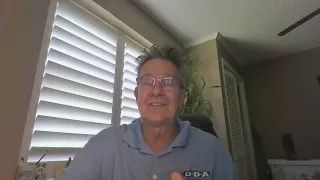As more seniors live alone, retirement finances could be challenging 36% of American households are currently occupied by single individuals aged 50 and older, according to a new column
Generation Xers and baby boomers who live alone in retirement may face unique financial challenges compared to other seniors, according to a column in The Street by Center for Financial Planning (CFP) partner Sandra D. Adams.
After a New York Times story was published on the challenges of seniors living alone, Adams looked at data from the U.S. Census Bureau and found that the trend could result in unique challenges for older Americans.
“36% of American households are currently occupied by single individuals aged 50 and older, a total of nearly 26 million people,” Adams wrote in the article. “This group has traditionally been more likely to live alone, and now that age group, including baby boomers and Gen Xers, makes up a larger share of the population than ever before.”
Evolving gender and marriage attitudes have led to the increased likelihood that retired people are divorced, separated or never married, Adams wrote.
Adams identifies the unique challenges that this group could face in retirement, which include the chance of increased social isolation; increased challenges with managing a household; a lack of a partner as an advocate for estate-planning purposes or for providing care; and having only have one set of resources and assets to draw from.
A 2021 study from AARP showed that 90% of older adults want to age in place in their own homes, and a greater numbers of older adults living alone could challenge those desires, Adams said.
“While this desire for comfort and privacy is completely understandable, managing a home can be financially and physically overwhelming for single individuals as they age,” Adams wrote.
Managing individual health or mobility problems presents challenges if a home does not have aging in place design features, Adams said.
Solutions that may help to address these issues include paying off the home prior to retirement; making home modifications so that aging in a particular home is easier; and building flexibility in a financial plan so that it’s easier to pay for help when managing a home becomes more difficult in later life.
The reverse industry has presented reverse mortgage loans as a potential solution for many of these issues. While a reverse mortgage loan can offer additional liquidity to seniors who own their homes, seniors with existing mortgage balances could use this type of loan to eliminate their existing mortgage payment.
More recently, major reverse mortgage lenders have sought out partnerships and acquisitions designed to assist with home modifications and to facilitate aging in place for senior borrowers. Last year, the U.S. Department of Housing and Urban Development (HUD) also weighed in on the viability of home modifications to facilitate goals with aging in place.
Have A Question?
Use the form below and we will give your our expert answers!
Reverse Mortgage Ask A Question
Start Your Loan
with DDA todayYour local Mortgage Broker
Mortgage Broker Largo See our Reviews
Looking for more details? Listen to our extended podcast!
Check out our other helpful videos to learn more about credit and residential mortgages.





